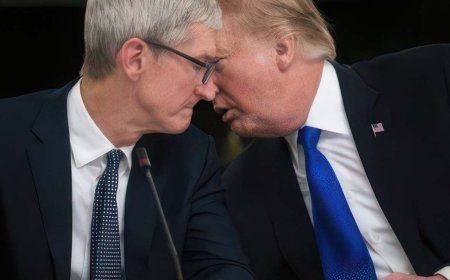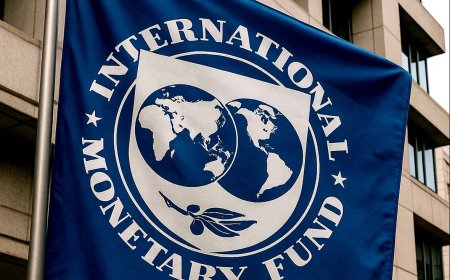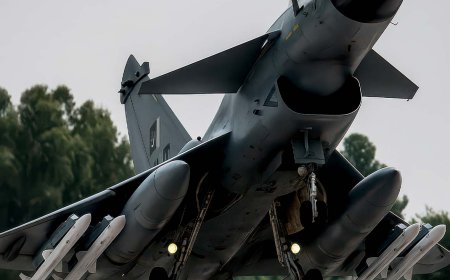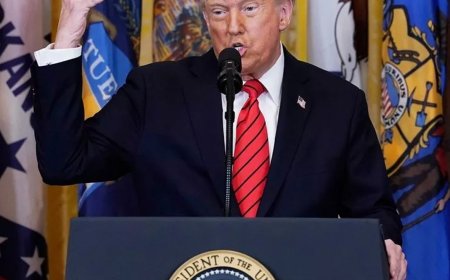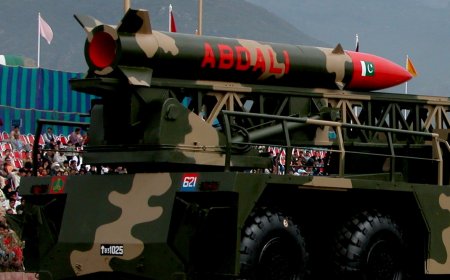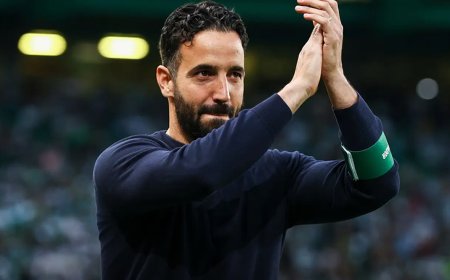Trump Meets Syria’s President, Lifts Sanctions in Shocking U.S. Policy Shift
In a historic move, U.S. President Donald Trump meets Syrian leader Ahmed al-Sharaa in Saudi Arabia and lifts sanctions on Damascus. The U.S. now considers normalising ties with Syria, reshaping Middle East diplomacy.

RIYADH, May 14 (Reuters) – In a surprise geopolitical pivot, U.S. President Donald Trump met Syrian President Ahmed al-Sharaa in Saudi Arabia on Wednesday during his high-stakes tour of the Gulf. The unexpected diplomatic engagement was accompanied by a historic U.S. announcement to lift all sanctions imposed on Syria — marking a sharp reversal in Washington's longstanding position.
The meeting occurred ahead of a Gulf Cooperation Summit hosted in Riyadh, where leaders from Saudi Arabia, Qatar, the United Arab Emirates, and the United States gathered to discuss regional economic and security cooperation. Saudi state television broadcast images of Trump and Sharaa shaking hands in the presence of Saudi Crown Prince Mohammed bin Salman (MbS), further solidifying the moment's significance.
Trump's administration confirmed that the U.S. is now officially exploring the normalization of diplomatic relations with Damascus — a move that stunned global observers and stirred debate in Washington and Tel Aviv alike.
Shifting Strategy in the Middle East
This policy shift signals a broader reconfiguration of U.S. foreign strategy in the Middle East. While many members of Trump's administration had expressed caution, especially due to Sharaa’s previous ties to Al Qaeda, Trump announced during a speech in Riyadh that the U.S. would officially lift all sanctions on the Syrian government. The White House cited encouragement from Saudi Arabia’s MbS and Turkish President Tayyip Erdogan, who both supported the move.
Erdogan joined the summit virtually, according to Turkish media outlet Anadolu, and praised the diplomatic overture. MbS, speaking to summit attendees, welcomed Trump's decision as a "historic gesture that can pave the way for peace in the region."
Israel Watches Cautiously
Israel, one of Washington’s closest allies, has long viewed Sharaa’s regime with suspicion. Israeli officials have accused Sharaa of jihadist leanings, despite his 2016 renunciation of Al Qaeda and break with the group’s ideology. The Israeli government has yet to officially respond to the policy shift, though political analysts suggest the move could strain relations between Washington and Tel Aviv.
Sharaa came to power after ousting Bashar al-Assad in December. Since then, he has struggled to consolidate control over all of Syria, facing fierce resistance from remnants of the Assad regime and violent attacks by Islamist insurgents. In March, pro-Assad factions launched deadly attacks on government forces, triggering retaliatory violence that claimed hundreds of civilian lives — an incident that drew sharp condemnation from the U.S. State Department.
Despite his past as an Al Qaeda commander and years in U.S. captivity in Iraq, Washington removed a $10 million bounty on Sharaa last December — possibly foreshadowing the diplomatic breakthrough now underway.
More Gulf Engagements Ahead
Trump's four-day tour of the Gulf includes visits to Qatar and the United Arab Emirates following his stop in Saudi Arabia. He is expected to meet with Qatari Emir Sheikh Tamim bin Hamad al-Thani in Doha later today. Qatar is reportedly preparing to announce major investment deals in the United States, signaling deepening economic ties.
On his first day in Riyadh, Trump secured a $600 billion investment commitment from Saudi Arabia and a $142 billion U.S. arms deal — further solidifying his administration’s pivot toward economic diplomacy over military intervention.
The unfolding developments represent a pivotal moment in Middle Eastern geopolitics — one that could reshape alliances, redefine enemies, and redraw the diplomatic map.
What's Your Reaction?







